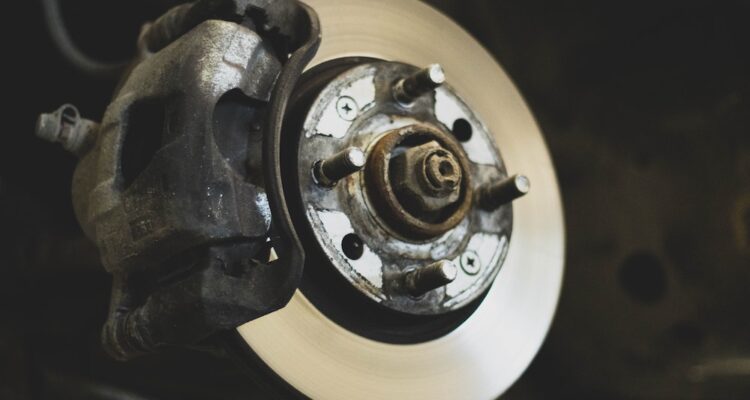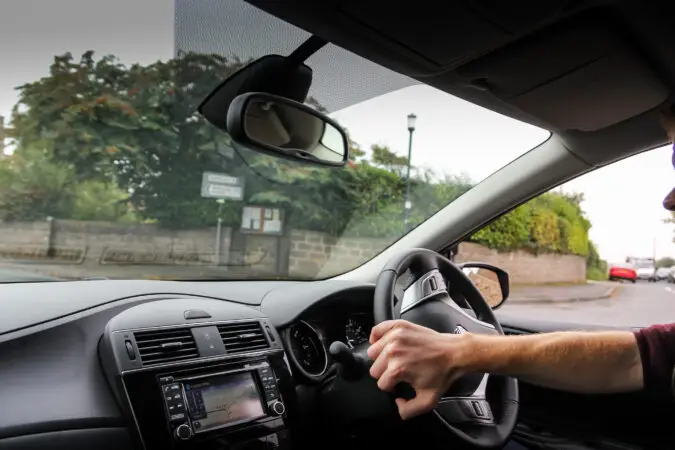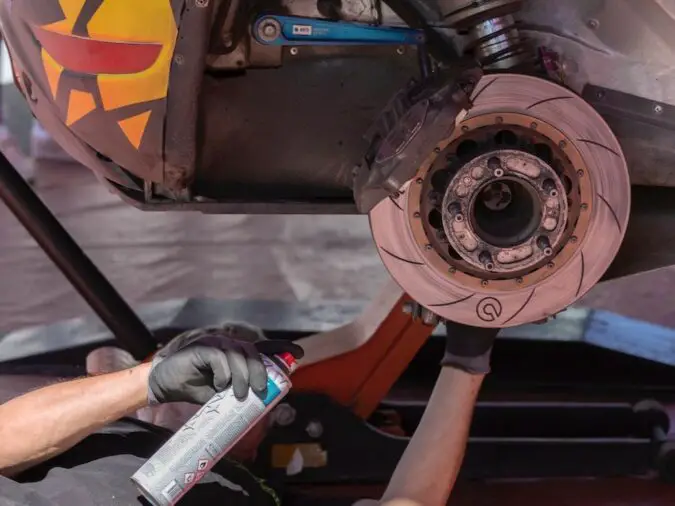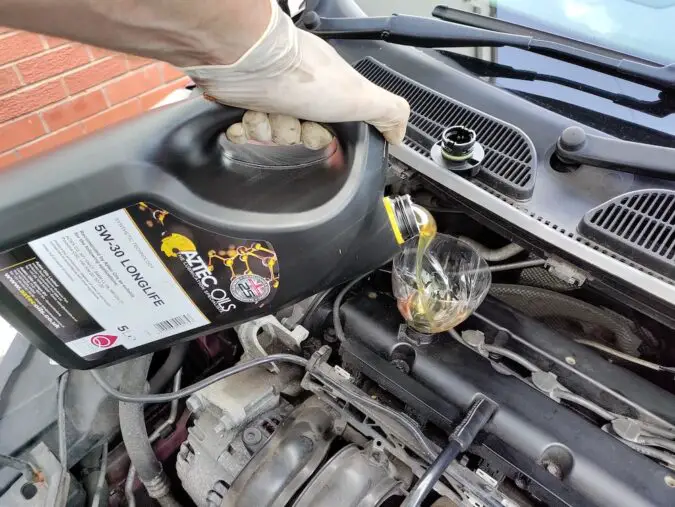Noise while driving is always a concern, especially on wheels that squeak. Wheel squeaks when driving can ruin the peaceful nature of a ride. It might drown music, phone calls, and conversations during the ride. Most of all, it can be very embarrassing. Besides wheel squeaks being a nuisance, it can be a sign of a fault in the tires or wheel system.
Wheel squeaking occurs as a result of two materials rubbing together to create friction. This effect usually occurs within the wheel’s subsystem. That is the suspension, steering, or tires. A noisy wheel might not be dangerous at first, but it is vital to investigate the sound to prevent essential parts of the car from breaking down.
Any strange noise coming from a vehicle should be a concern. The car might not be at a 100% efficient working rate. When the noise is a constant squeak, it adds headache and stress to the equation. To help you identify and fix this stress, we will explain thoroughly all about wheel squeaks while driving…
Car Squeaks When Turning
The most likely cause of why your car squeaks while turning is low-power steering fluids. Low power steering fluid causes insufficient lubrication in the power steering system. This effect results in the parts rubbing together with friction and emitting a squeaking sound (so, it’s a good idea to learn how to check power steering fluid).
Car squeaks while turning are not a huge problem. One can quickly solve it by checking the fluid level. If the fluid level is low, refill the fluid. Consult the vehicle manual to locate the power steering fluid reservoir. Checking the car fluid level should be a routine service maintenance act. Also, make sure you know where to put the power steering fluid.
Identifying when the squeaking sound occurs is one step toward finding the cause of the sound. Although car squeaks are not always a result of a severe fault in the car, it is a pointer that something is wrong. That is why it is essential to familiarize yourself with your vehicle’s sound. It helps you quickly identify when something is wrong early.
Car Squeaks When Driving
Car squeaks when driving should be a big concern. It means that some part of the vehicle is experiencing friction. This friction can cause wear and tear of vital car parts and eventually a car breakdown.
One cause of car squeaks while driving is the brake pads. When the brake pads and disc do not fit or are worn out, it causes a squeak while driving, due to worn brake pads (so, be wary of how long does brake pads last). When the driver presses on the pedal, the caliper holds onto the pad, slowing the car down.
The more the brake pads are utilized, the more it thins down. Eventually, there will be no protective layer anymore. The effect of the thinning of brake pads is a squeaky sound. The sound comes from the rubbing movement of the two metals against each other. Replace worn-out brake pads (be wary of how long do brake pads last). They can also lead to ghastly accidents.
Loose and worn-out serpentine belts, old alternators (make sure you’re wary of how long does an alternator last), and faulty steering systems also cause squeaking in vehicles while driving. Low power steering fluid is also a huge cause of car squeaking when driving.
Once a car produces a squeaking sound when driving, it is time for a proper inspection and servicing. This service is vital for the long life of the vehicle. It is best to refer to a professional mechanic for car servicing.
Thumping Noise When Driving
Thumping noise when driving is a pretty huge deal. The thumping noise indicates that there might be a significant repair bill on the way. The thumping sounds when driving can be a result of several factors. These factors include the following:
Thumping Noise When Driving: #1. Worn Out Tires
The thumping sound could result from unevenly wearing out the tire threads. Keeping the tires at the correct pressure and tread levels is crucial. Use tread level tests to determine whether the tires are worn out. If it is worn out, replace them as soon as possible to avoid accidents.
Thumping Noise When Driving: #2. Faulty Suspension System
A thumping sound emitting from the car’s front end while driving might result from a suspension problem. Getting a professional for a check-up is best to check for any fault in the suspension.
Thumping Noise When Driving: #3. Transmission Mount Or Starter Motor Problem
Thump sounds from the car front while accelerating on a drive can be due to a starter motor problem or a transmission mount fault. Oxidation, collision damage, and vibrations can affect the transmission mount. Get a technician to inspect the car and fix any defects.
Thumping Noise When Driving: #4. Brake Rotors Wrap
If the thumping sound comes from the car’s front wheels, there may be a wrapped brake rotor. The rotors are metal discs visible at the back of a car wheel. They slow down the car’s movement using the help of the brake pads. The friction they generate causes the rotors to become uneven and cause squeaking sounds while braking.
Taking your vehicle to a garage is advisable if you experience a thumping sound while driving. This advice is essential for both the car and car owners’ longevity.
Screeching Noise When Driving
Many things can cause screeching noise when driving. Some might require major or minor repairs, but whatever the case, it is essential to fix it immediately to avoid more damage to the vehicle. The following things can cause screeching noise in cars:
Screeching Noise When Driving: #1. Serpentine Belt Wear
The serpentine belt is a rubber belt that wears quickly. It produces a screeching sound when it wears. Once this sound occurs, it is vital to replace it immediately as it could cut. The belt drives the alternator, and a cut will stall the vehicle.
Screeching Noise When Driving: #2. Bearing Wears
There are bearings in the alternator, air condition compressor, idler pulley, and power steering pump. With time these bearings will wear and cause a screeching noise. The noise might also be a gurgle, howl, or squeak. But whatever noise it makes, ensure to change the bearings as if they fail, the other components will cease to work.
Screeching Noise When Driving: #3. Brake Wear
Wear and tear in the brake pad can cause a screech when applying brakes. Brake rotor wear and tear can also cause a screech. Replacement of the brake pad is the solution to this problem.
Screeching Noise When Driving: #4. Intake System Fault
When there is a hole in the intake system, it can cause a screeching noise. This fault will trigger the check engine light, mainly if the gap affects the positive crankcase ventilation. Intake system problems cause poor engine performance and bad fuel efficiency.
Screeching Noise When Driving: #5. Low Oil Level
Without a regular oil change, there will be a lack of lubrication within the engine components (you can learn more in our guide on how much oil does my car need). The bearings will wear out fast due to friction and cause an awful screeching noise. Without an immediate topping to the oil, the engine will fail.
The best method to determine the cause of a car screeching noise when driving is by determining the source of the noise. If you are unsure where it is emitting, it is best to take it to a garage for inspection.
Wheel Squeaks When Driving
The wheels are directly responsible for a car’s performance. They determine how fast a driver takes a turn, how often they can put the power down, and at what speed they can drive. It is one of the most vital features of a vehicle. The wheels should be on top maintenance priority.
Ignoring a squeaky wheel is a bad idea because it is always a sign of more significant damage. Ignoring a squeaky wheel can result in a more expensive and time-consuming problem, causing further issues to develop.
Most wheel squeaky issues are mechanical. Most solutions involve the addition of lubricants or part replacement. This solution might seem easy, but it also includes disassembling the wheel. It is best to see a technician for a squeaky wheel repair. Here are some causes of squeaky wheels:
Wheel Squeaks When Driving: #1. Bad Road Condition
Random squeaks can be due to driving through bad roads. The vibrations from rough roads can cause squeaky sounds from the wheel. Be alert to see if the squeak continues on a good road. If it does, it might not be a bad road.
Wheel Squeaks When Driving: #2. Bad Bushing
Bushings or ball bearings (aka the ball bearings on a car) are in between the tire and the wheel axle. They help the wheels spin smoothly. Any damage to the metal spheres inside the bushing, like a ball joint breaks, gets stuck, or rusts. There will be a squeaking sound from the wheel. The squeak will be a result of the ball joints not moving correctly.
Wheel Squeaks When Driving: #3. Heat Expansion
Exposure of a vehicle to intense sunlight can cause metal expansion. The metal of the wheels expanding causes components that do not touch to touch, accusing a squeaky noise. If this happens, wait for the car to cool down and check if the squeak continues. If it does, take the car to a garage.
Wheel Squeaks When Driving: #4. Lack Of Suspension Lubrication
The suspension of a vehicle absorbs the force from bumps while driving. The suspension needs constant lubrication to work efficiently. Without proper lubricants, the wheel will squeak whenever they are bumps and potholes. Apply a good quantity of oil to avoid this noise and save the weel from wearing out.
Wheel Squeaks When Driving: #5. Car Peeling
Peel out occurs when the driver hits the gas hard at a stop. The wheel spin fast to get a grip. A quick peel makes a slight squeak sound before moving.
Determining the exact problem causing the squeaky wheel is always challenging, but a trip to the garage will solve all problems before they become more significant.
Loud Tire Noise At Highway Speeds
Loud noise at highway speed can be very annoying. It increases road risk and reduces the driver’s performance. The main reason for loud noise at highway speed is the car tires. While there is no sole reason for the loud noise coming from a car at highway speed, any of these methods below can be the cause:
Wheel Squeaks When Driving, Reducing Tire Noise #1: Tire Features
They are different types of tires that produce different amounts of noise while driving. Studded heavy tires make a loud noise because they carry heavy loads. Likewise, Traction tires have plenty of space between the lugs. No solution to this noise production exists except to change the vehicle tires to a softer type.
Wheel Squeaks When Driving, Reducing Tire Noise #2: Old Tires
A tire at old age produces noise due to low, worn, and uneven treading. Loss of tread uniformity reduces the sound-muting effect of the tires. Replace old tires, especially if they are around 50,000 miles of use. Changing old tires help prevent road accidents too.
Wheel Squeaks When Driving, Reducing Tire Noise #3: Bad Roads
Rough roads can cause traction to the tires. The traction will produce a loud noise. While on a bumpy or bad road, drive gently to prevent car tire damage and loud noise.
Other reasons include lousy suspension bush, lack of tire rotation (for more insight, check out our guide on tire rotation and balance cost near me), CV joint wear, wheel bearing damage, low tire pressure (check out our guide on how to fix tire pressure to learn more), and driving style. Any of these can cause loud noise.
Tire Noise Or Wheel Bearing
Car tires are one of the significant reasons for noise in a car. Tire noise can be due to a faulty car wheel bearing. The noise emitting could be due to metals grinding together inside the wheel bearing bush. The front wheel bearings are the most susceptible to damage in a car.
Once there is grinding noise from the tires, know that the bearings might have cracks or are not well lubricated. Visit the nearest garage to fix or replace the wheel bearings immediately. Faulty wheel bearing can quickly develop into more significant problems. You can learn more in our guide on how many wheel bearings does a car have.
Car Squeaking Over Bumps
Lots of car parts can squeak when going over a bump. A car is a joining of many components, and when some features are loosely fit or worn out, a bump will produce a squeak. The squeak cause can be difficult to identify because they do not occur except at a bump.
Squeaking when going over a bump can be worn joints, suspension bushings, broken coil springs, bad shock absorbers, manual transmission, or the clutch. Ensure to inspect any squeaking sound from going over a bump. You might just be preventing much more extensive damage.
Tire Noise After Rotation
Tire noise after rotation is usually due to uneven wear patterns before tire rotation. The wears give off a loud humming sound when driving. Uneven tire wears before rotation can cause poor alignment issues. The absence of regular tire rotation is terrible because it ensures all tires wear down at the same rate.
It is important to rotate tires every 5000-8000 miles. Switch the position of the tires together with the rims. The front tires can go to the backside and vice versa. Tire rotation helps the tires get heavy loads evenly and in turns. If there is uneven wear already, replace the tires before rotation.
Unbalanced Tires Noise
Unbalanced tires are a result of unbalanced tread depths. They cause loud noise while driving. Usually, the noise comes from one of the tires being out of alignment. It is the tire air chambers that produce the drumming or humming sound.
Unbalanced tires can also cause vibrations in the steering wheel, floorboards, and seat. Over time it will eventually lead to uneven wear on the car tires. Some tires will wear faster than others. Ensure to fix an unbalanced tire to prevent further damage.
Squeaking Noise From Rear Wheel While Driving
Any squeaking noises from the rear wheel indicate a fault in the rear wheel and could damage the wheel. Squeaking noise from the rear wheel while driving can occur for any of these reasons:
- It could be due to a worn-out wheel bearing. When the bearings are not moving smoothly, they give a squeaky noise as the metals grind on each other.
- It could also be due to a brake rotor wrap or excess brake dust inhibiting the proper moving of the component.
It is best to have a car mechanic check and diagnose the source of the rear wheel squeak before fixing it. It is hazardous to continue driving a vehicle without fixing up the problem.
Creaking Noise Coming From Front Wheel
When there is a creaking noise coming from the front wheel of a vehicle, it can be an indication that the suspension components are worn. The suspension links, spring, and joints could be loose, or there is no lubricant hence the squeaking sound.
It is also possible that the steering system is faulty. Identifying where the noise emits is the first step to solving the problem. Careful inspection will yield the sound source. It is best to use the help of a professional for this.
FAQs On Wheel Squeaks When Driving
Why Is My Car Squeaking
The car squeaking results from two metals rubbing against each other without lubrication. This squeaking effect usually occurs when there is a fault in the car components like the wheel subsystem, brake, suspension belt, bearings, or tires. It is important to fix any squeaking sound to prevent more damage to the car.
Why Does My Car Squeak When I Brake
Your car squeaks when you brake due to wear in the brake pads. Worn brake pads rub against each other to produce a squeaking sound. Squeaking brake pads means it needs a change. Not replacing the bake pads will lead to brake failure and even death.
Why Is My Car Making A Whining Noise
Sometimes a car can give out a high-pitch whining sound from the engine area. This sound can be very ear gritting and annoying. Whining noise in vehicles is due to any of the following: A lousy power sterling pump, faulty water pump, failure in the alternator, or air-conditioning system problem. Any of these faults can cause a whining sound in a vehicle. It is important to regularly inspect a car, especially when there is any strange noise.
Why Do My Tires Squeal When I Turn
Some squeak sounds in a car occur when the driver is doing a corner turn. There are several reasons for a squeak at a turn. They can happen due to any of the following: Low power steering fluid level, wheel misalignment, rough peel-out, uneven threads, worn-out brake pads, suspension fault, low tire traction, and worn-out belt. Get a mechanic to detect where the problem is from and fix it right away. These faults might not seem significant, but they are building blocks to a car failing.
Why Is My Car Whistling
Your car whistling could be due to a vacuum leak. The vacuum controls air flow between the airflow sensor and the engine through a hose. Any leak will give a whistling sound. The vehicle could also have low transmission fluid, or the fuel injectors might be dirty.
Why Does My Steering Wheel Squeak
The common reason for steering wheel squeaks is low power steering fluid. The fluid lubricates the steering system and determines how smooth the steering wheel feels and sounds. A low fluid level will result in a squeaking sound since the car steering wheel is off-center.
Why Is My Car Squeaking When I Turn
Your car squeaking when you turn may be due to low lubrication in the suspension, friction around the steering wheel subsystem, or low power steering fluid. Any of these faults will cause a squeak while turning. The solution is topping the fluid level to the maximum. A well-lubricated engine leads to a good car.
Why Does My Car Squeak When I Start It
The primary reason your car squeaks when starting is a failure in the serpentine belt. The serpentine belt connects the crankshaft to other engine parts like the water pump, power steering, alternator, and AC. It is found under your car hood.
How Do I Fix The Squeaking Sound In My Car
The most important and first step towards fixing any squeaking sound in your car is identifying the source or location where the sound is coming from. The noise source determines the solution. If you can not decipher the source, it is best to call a mechanic for proper inspection and servicing of the car.
How Do I Prevent My Wheels From Squeaking
You can prevent your car wheels from squeaking by doing regular maintenance on the car. Routine or regular maintenance will root out developing faults in the vehicle. Fixing these faults before they become bigger helps the car have a long life. Another critical aspect is ensuring your car engine fluid level is always suitable. Proper lubrication prevents friction, and friction is the primary cause of car squeaks.
Is It Bad If My Car Is Making A Squeaking Noise
Yes, it is terrible if your car is making a squeaking noise. The noise could signify a more significant problem on the way. A car making a squeaking sign shows that the suspension system is not working correctly. It is better to solve a minor problem than to manage a bigger one.
Conclusion On Wheel Squeaks When Driving
Wheel squeaks while driving is a massive cause of discomfort during a ride. It isn’t very uncomfortable and generates attention to the car. It also reduces the driver’s capability on the road and increases the chances of a road accident.
As much as car squeaks are a problem, they do not have a single solution due to possible causative agents. The primary way to solve car squeaks is by detecting the noise source and fixing the car part causing the noise. Regular Routine maintenance goes a long way to preventing car wheel squeaks, and ample lubrication is a top priority.










